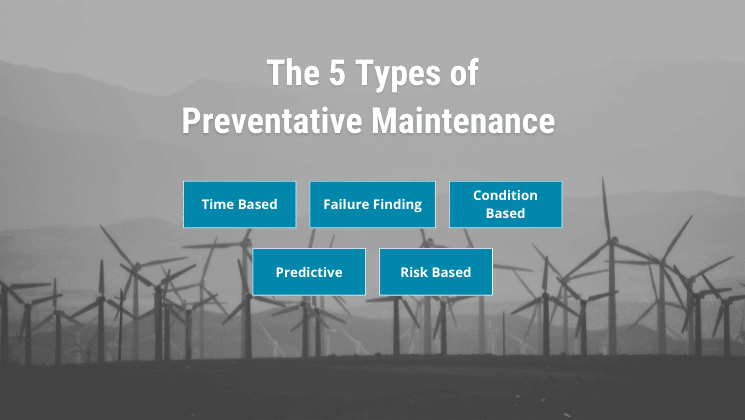How to Close Out Maintenance Work Orders

How to Close Out Maintenance Work Orders In the Maintenance Planning & Scheduling process, close out work is the phase where we capture the information needed for continuous improvement. We collect data on: What went well?What can be improved?What didn’t produce good results? Sadly, close out is often seen as an admin burden.A waste of […]
3 Major Sources of Waste in Maintenance

The concept of Lean has been around for a long time, but the concept of lean maintenance is not talked about that much. There are a few books written on the topic, but if I’m honest not enough is written about lean maintenance considering how important it actually is in our journey towards higher reliability. […]
What is Time-Based Maintenance?

If you take a look at your preventive maintenance program, you’ll probably see a LOT of time-based maintenance tasks. After all, it is the easiest type of preventive maintenance task to execute. You simply conduct your task at fixed time or usage intervals. It doesn’t really get much easier than that. But chances are, you’re not […]
Hidden Failures in Maintenance

Sometimes, we have hidden failures in our organisation. And if they’re not discovered, you will find yourself dealing with a pile of problems later on. To prevent hidden failures from happening, you must first understand what they are. Let me explain what a hidden failure is in more detail. A hidden failure is a functional […]
Failures vs. Functional Failures vs. Failure Modes vs. Failure Mechanism

When dealing with preventive maintenance, there are 4 concepts that you need to understand and apply to create an effective and efficient Preventive Maintenance program. If you’re a maintenance practitioner, you’ve probably heard of these terms numerous times. But let’s go back to basics and clearly define what they are. In the absence of common industry […]
Stop trying to fix everything

As maintenance practitioners we often do our utmost best to try and prevent as many failures as possible. Afterall, failures create downtime… And downtime results in big profit losses for the organisation. But sometimes, our fear of failures leads us to doing way more Preventive Maintenance tasks than necessary… resulting in highly inefficient and expensive […]
The 5 Types of Preventive Maintenance

At a high level, all maintenance is either preventive maintenance or corrective maintenance. As a maintenance practitioner, you need to match the right type of maintenance with the characteristics of the failure mode you’re dealing with. And you need to pick the type of maintenance that suits your objectives. In this article, we will discuss […]
Information Overload in Maintenance Training

We often need to consume plenty of complex data and information in a short amount of time. But sometimes, this amount of information can get overwhelming. This is when you start experiencing Information Overload. Information overload describes the difficulty to learn, understand, and make decisions due to the excessive amount of information available to a person […]
Why Should We Bother With Maintenance Scheduling?

“Is planning the job not enough?” “How is scheduling going to increase our productivity?” Plenty of my clients and students have asked me these questions. So, here’s the bitter truth: Even if you had world-class planning… It won’t be enough to achieve high productivity. Because planning alone will only help you do individual jobs better. […]
5 steps to manage maintenance backlogs

A lot of people have very fixed ideas about maintenance backlog. Some people see backlog as any work that was due in the past. Others also include work that is rescheduled for the future (which is technically called forelog). But I like to make things as simple as possible. In my simple view, backlog is […]